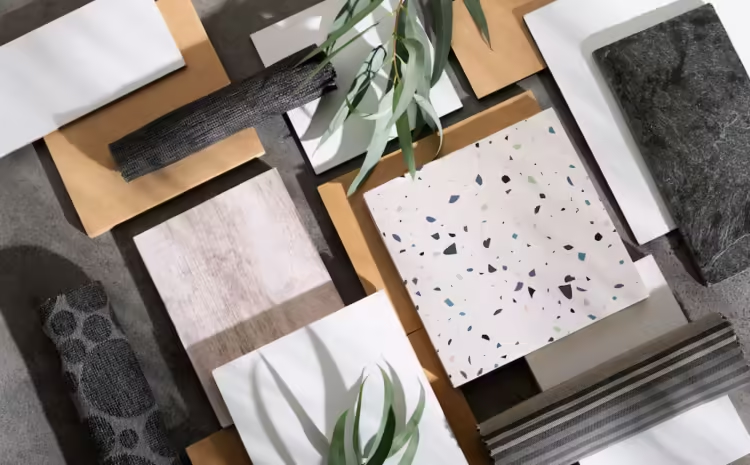
Creating a Mood Board for Your Project: A Comprehensive Guide
Table of Content
Creating a Mood Board for Your Project: A Comprehensive Guide
In the hustle and bustle of life in Delhi NCR and Chandigarh Tricity, picturing your perfect luxury home or hospitality project can be a challenging yet exciting task. This blog is your ultimate guide to visualizing your dream space using a mood board, an essential tool that brings together images, color swatches, and materials to solidify your vision. Whether you’re starting from scratch or contemplating a renovation, understanding how to create a mood board can make the process smoother and more enjoyable.
Why Create a Mood Board?
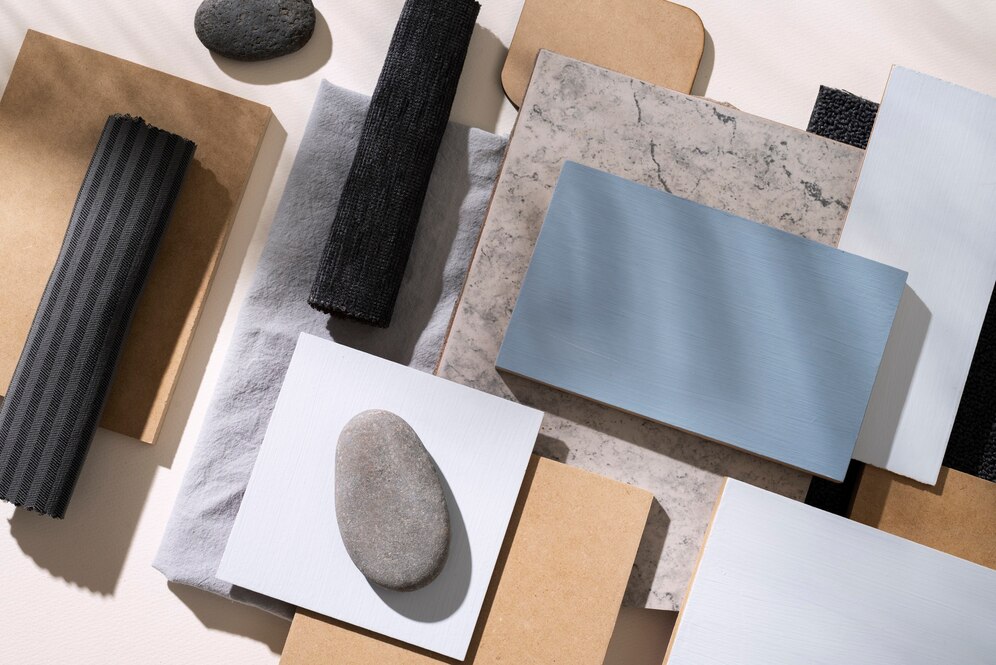
Creating a mood board is more than just a creative task; it’s a strategic way to align all stakeholders on a shared vision. Here’s why this blog is worth reading:
- Understand how a mood board helps in making informed decisions about aesthetics.
- Learn how to effectively communicate your ideas to designers and contractors.
- Discover the right tools and techniques to craft a luxury home or a hospitality project that reflects authentic elegance.
Choosing the Right Images
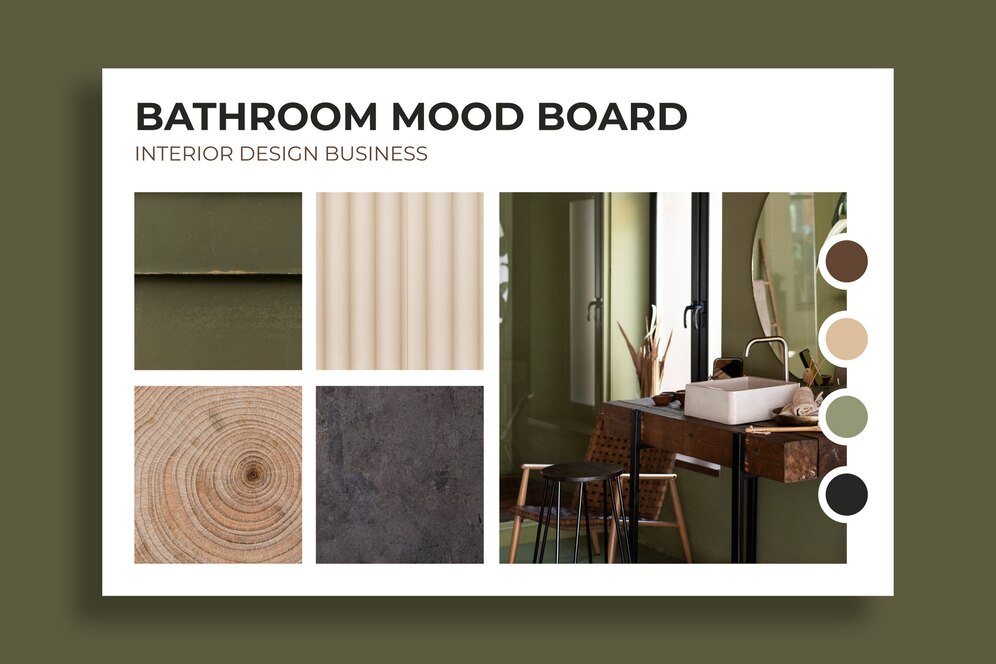
Visualizing Your Dream
Start by curating high-quality images that resonate with your desired style. Websites like Pinterest, Houzz, and Instagram are treasure troves of inspiration. Pay close attention to details like flooring, wall textures, and furnishings. Remember, an image speaks a thousand words and can vividly convey your aesthetic preferences.
Variety and Cohesion
Ensure your image selection is both diverse and cohesive. This means having a range of styles while maintaining a consistent theme. It helps to divide your board into sections—one for each room or area you’re planning to renovate. This structured approach will ensure that your entire project, from living room to kitchen, follows a harmonious design narrative.
The Power of Color Swatches
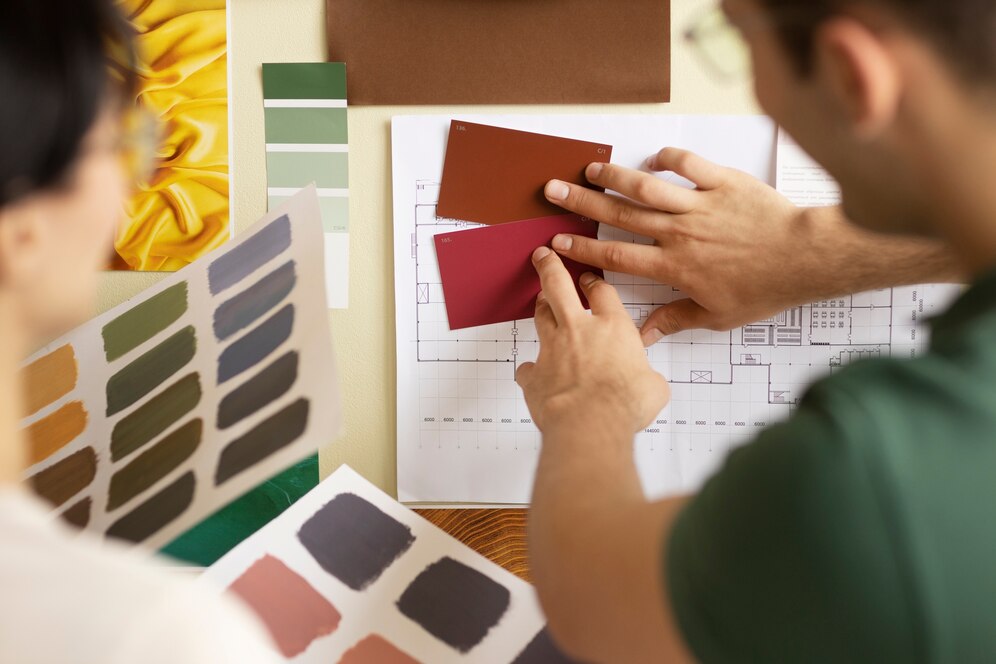
Picking the Perfect Palette
Colors play a critical role in setting the ambiance. Color swatches from paint stores or digital tools like Adobe Color can assist in finding your perfect palette. Consider the emotional impact of colors; for instance, blues and greens often exude calm, whereas reds and yellows can add vibrancy.
Harmonizing Shades
Balance is crucial. A mood board should showcase a primary color and a set of supporting shades that complement each other. For luxury projects, think of rich tones like emerald green, royal blue, or chic neutrals like beige and gray. These colors not only elevate the space but also make it timeless.
Material Matters
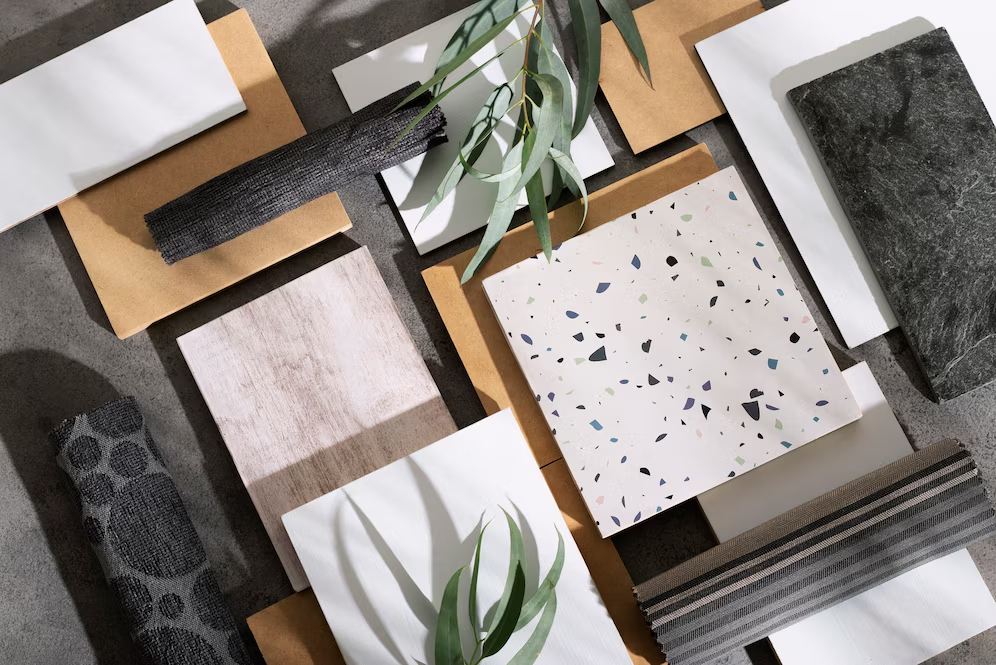
Selecting Textures and Finishes
Different materials evoke different feelings. When planning a high-end renovation, materials like marble, oak, and high-quality fabrics can contribute significantly to the overall aesthetic. Include actual samples of these materials on your board whenever possible.
Sustainable Choices
In today’s eco-conscious world, sustainability is key. Opt for eco-friendly materials without compromising on luxury. Bamboo, reclaimed wood, and recycled glass are excellent choices for those looking to create an opulent yet sustainable space.
Creating Digital Mood Boards
[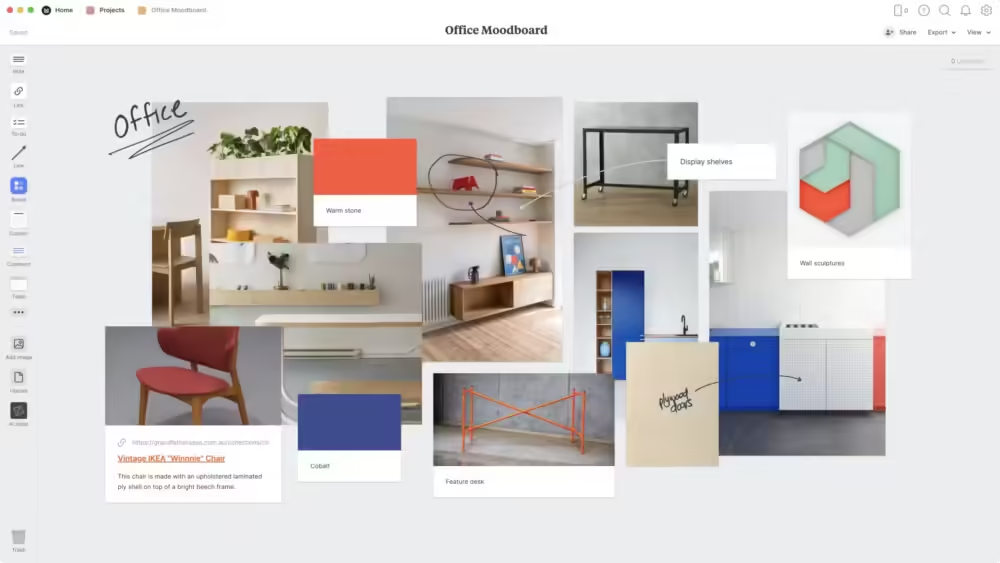 source: google[/caption]
source: google[/caption]
Utilizing Technology
Gone are the days of physical mood boards alone. Tools like Canva, Morpholio Board, and Miro can help you create detailed and interactive digital mood boards. These platforms allow for easy sharing and modifications, making collaboration with your architecture and interior design team seamless.
Keeping It Organized
A cluttered mood board can be counter-productive. Use categories, tags, and labels to keep everything organized. This organized approach will make it easier for you and your contractors to understand and follow the design plan.
Collaborating with Professionals
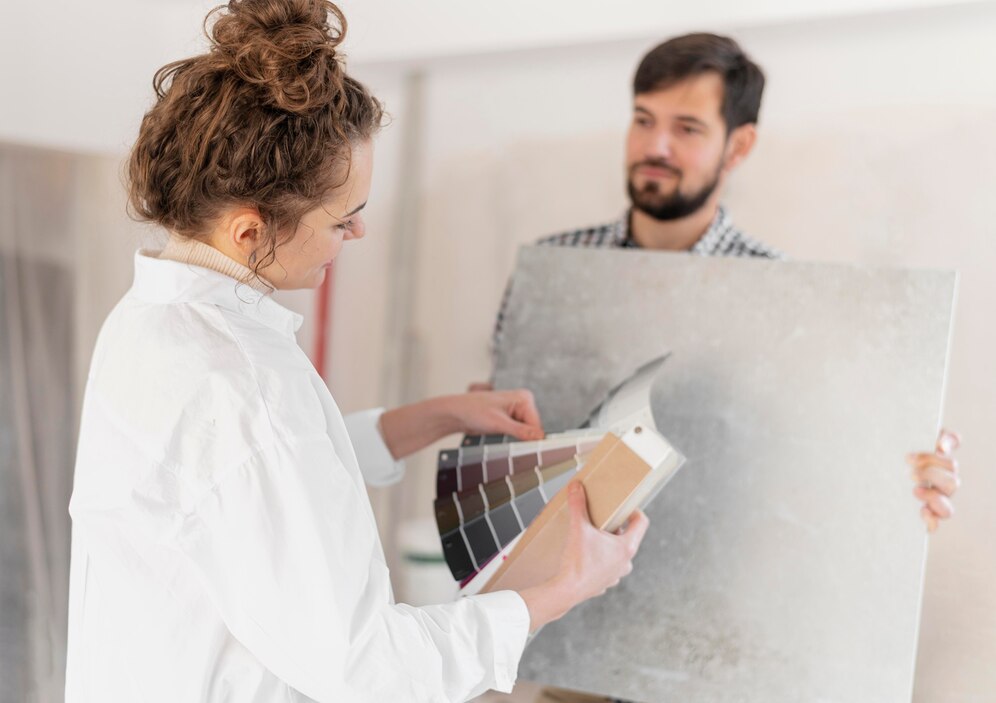
Teamwork Makes the Dream Work
A mood board is your roadmap to renovation success. Share it with your project management team and construction experts to ensure everyone is on the same page. Regular meetings and updates based on the mood board will keep the project on track and within your envisioned style.
Innovative Discussions
Engaging with professionals can also open up avenues for creative sparks. Their expertise can offer valuable insights and enhancements to your mood board, paving the way for a renovation that surpasses expectations.
Bringing Your Mood Board to Life
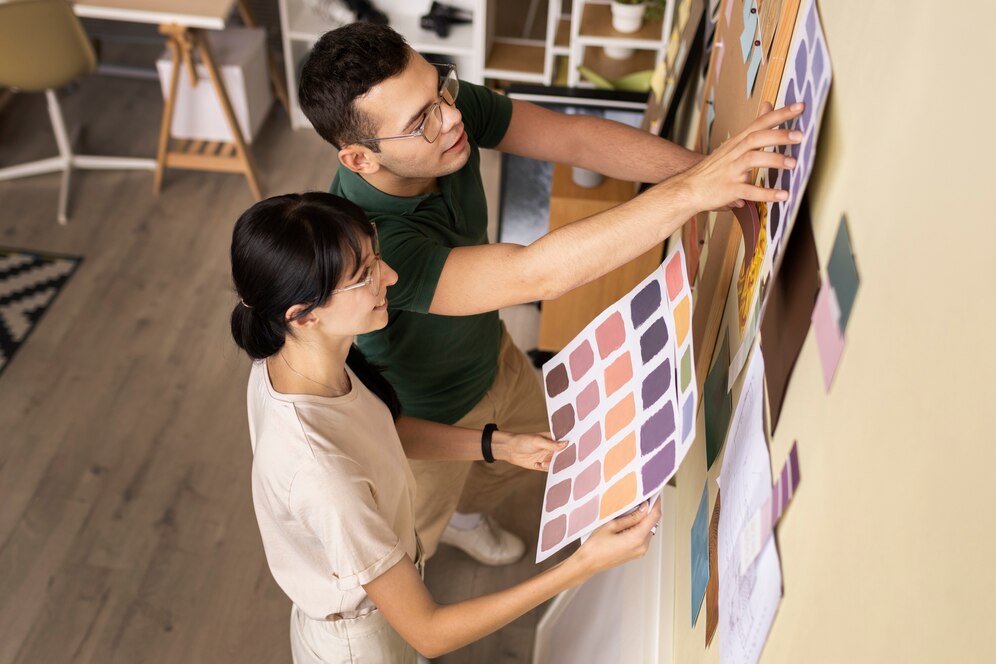
Execution and Adjustments
Having a mood board is half the battle won. The next step involves executing the plan with room for minor tweaks. Stay flexible and allow for adjustments based on practical considerations like space limitations and budget constraints.
Feedback Loop
Keep the communication channels open. Collect feedback from all involved parties and make necessary refinements. This constant loop ensures that your luxury home or hospitality project evolves in line with your vision.
Conclusion
A well-crafted mood board can be the cornerstone of a successful renovation project in Delhi NCR and Chandigarh Tricity. Here are the key takeaways to remember:
- Curate high-quality images that depict your desired style.
- Choose a cohesive color palette with color swatches.
- Include diverse materials to emphasize texture and luxury.
- Utilize digital tools for enhanced collaboration.
- Share your mood board with professionals for seamless execution.
- Be open to adjustments and maintain a continuous feedback loop.
By following these steps, you can transform your renovation dreams into reality. Happy designing!
Remember:
- A mood board communicates your vision clearly.
- Balance variety with cohesion in your choices.
- Prioritize high-quality, sustainable materials.
- Collaboration and flexibility are key to successful execution.
- Utilize digital tools for a modern approach to mood boarding.
